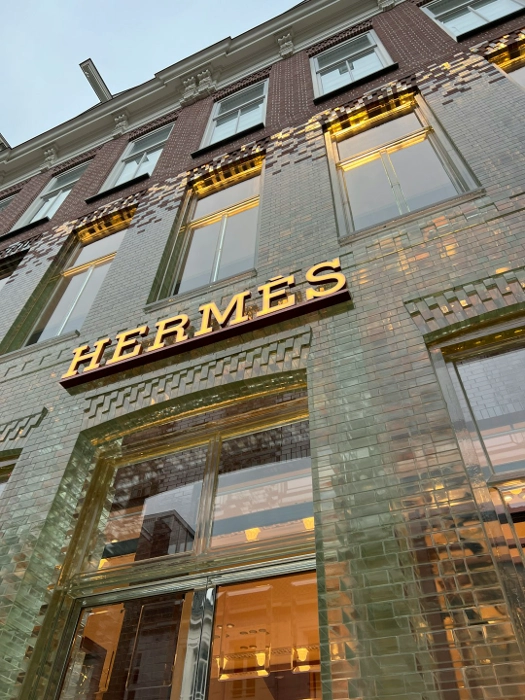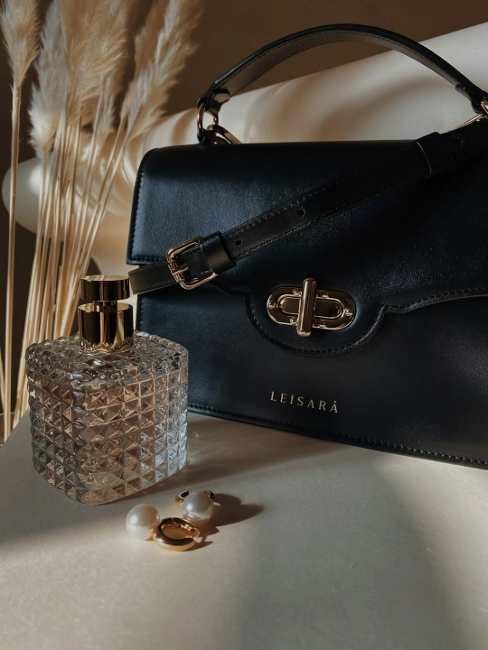Hermès: A Beacon of Sustainable Luxury

Table of Contents
-
Hermès, the iconic French luxury brand, has long been synonymous with exquisite craftsmanship and timeless elegance. However, the brand's commitment to sustainability has emerged as a defining aspect of its identity, positioning it as a leader in the realm of ethical luxury.
-
-
At the heart of Hermès' sustainable practices is its transparent supply chain. The brand meticulously traces the origin and production processes of its products, including the renowned Birkin bags, ensuring that the materials used, such as leather, are sourced responsibly and with minimal environmental impact.
-
-
-
Hermès' dedication to social responsibility is equally commendable. The brand upholds fair labor practices and safe working conditions for its artisans, who are the backbone of its exceptional craftsmanship. By prioritizing ethical sourcing and responsible production, Hermès sets a high standard for the luxury industry, inspiring conscious consumerism and positive change.
-
-
-
The longevity and durability of Hermès products are also key contributors to their sustainability. The brand's commitment to meticulous craftsmanship and the use of high-quality materials result in products that can be cherished and used for years, reducing the need for frequent replacements and minimizing waste.
-
-
Hermès further demonstrates its sustainability efforts through its repair and restoration services, which extend the lifespan of its products. By offering comprehensive aftercare, the brand encourages consumers to embrace a more mindful approach to luxury, where cherished items are repaired and rejuvenated rather than discarded.
-
-
-
Moreover, Hermès' limited production model and thriving secondhand market contribute to its sustainable practices. By keeping production quantities low, the brand avoids excessive waste and discourages overconsumption, while the secondary market provides an opportunity for pre-owned Hermès products to find new owners, extending their lifecycle.
-
Hermès' sustainability journey extends beyond its products, as the brand has implemented various environmental initiatives to reduce its overall ecological footprint. From investing in research and development for more sustainable materials to actively managing its greenhouse gas emissions and waste, Hermès demonstrates a holistic commitment to environmental responsibility.
-
In an industry where sustainability is increasingly becoming a priority, Hermès stands out as a beacon of ethical luxury. By seamlessly integrating sustainable practices into its operations, the brand not only upholds its reputation for excellence but also inspires others to follow suit, paving the way for a more eco-conscious future in the luxury sector.
-
Hermès, the iconic French luxury brand, has long been synonymous with exquisite craftsmanship and timeless elegance. However, the brand's commitment to sustainability has emerged as a defining aspect of its identity, positioning it as a leader in the realm of ethical luxury.
At the heart of Hermès' sustainable practices is its transparent supply chain. The brand meticulously traces the origin and production processes of its products, including the renowned Birkin bags, ensuring that the materials used, such as leather, are sourced responsibly and with minimal environmental impact.
Hermès' dedication to social responsibility is equally commendable. The brand upholds fair labor practices and safe working conditions for its artisans, who are the backbone of its exceptional craftsmanship. By prioritizing ethical sourcing and responsible production, Hermès sets a high standard for the luxury industry, inspiring conscious consumerism and positive change.
The longevity and durability of Hermès products are also key contributors to their sustainability. The brand's commitment to meticulous craftsmanship and the use of high-quality materials result in products that can be cherished and used for years, reducing the need for frequent replacements and minimizing waste.
Hermès further demonstrates its sustainability efforts through its repair and restoration services, which extend the lifespan of its products. By offering comprehensive aftercare, the brand encourages consumers to embrace a more mindful approach to luxury, where cherished items are repaired and rejuvenated rather than discarded.
Moreover, Hermès' limited production model and thriving secondhand market contribute to its sustainable practices. By keeping production quantities low, the brand avoids excessive waste and discourages overconsumption, while the secondary market provides an opportunity for pre-owned Hermès products to find new owners, extending their lifecycle.
Hermès' sustainability journey extends beyond its products, as the brand has implemented various environmental initiatives to reduce its overall ecological footprint. From investing in research and development for more sustainable materials to actively managing its greenhouse gas emissions and waste, Hermès demonstrates a holistic commitment to environmental responsibility.
In an industry where sustainability is increasingly becoming a priority, Hermès stands out as a beacon of ethical luxury. By seamlessly integrating sustainable practices into its operations, the brand not only upholds its reputation for excellence but also inspires others to follow suit, paving the way for a more eco-conscious future in the luxury sector.
Table of Contents
-
Hermès, the iconic French luxury brand, has long been synonymous with exquisite craftsmanship and timeless elegance. However, the brand's commitment to sustainability has emerged as a defining aspect of its identity, positioning it as a leader in the realm of ethical luxury.
-
-
At the heart of Hermès' sustainable practices is its transparent supply chain. The brand meticulously traces the origin and production processes of its products, including the renowned Birkin bags, ensuring that the materials used, such as leather, are sourced responsibly and with minimal environmental impact.
-
-
-
Hermès' dedication to social responsibility is equally commendable. The brand upholds fair labor practices and safe working conditions for its artisans, who are the backbone of its exceptional craftsmanship. By prioritizing ethical sourcing and responsible production, Hermès sets a high standard for the luxury industry, inspiring conscious consumerism and positive change.
-
-
-
The longevity and durability of Hermès products are also key contributors to their sustainability. The brand's commitment to meticulous craftsmanship and the use of high-quality materials result in products that can be cherished and used for years, reducing the need for frequent replacements and minimizing waste.
-
-
Hermès further demonstrates its sustainability efforts through its repair and restoration services, which extend the lifespan of its products. By offering comprehensive aftercare, the brand encourages consumers to embrace a more mindful approach to luxury, where cherished items are repaired and rejuvenated rather than discarded.
-
-
-
Moreover, Hermès' limited production model and thriving secondhand market contribute to its sustainable practices. By keeping production quantities low, the brand avoids excessive waste and discourages overconsumption, while the secondary market provides an opportunity for pre-owned Hermès products to find new owners, extending their lifecycle.
-
Hermès' sustainability journey extends beyond its products, as the brand has implemented various environmental initiatives to reduce its overall ecological footprint. From investing in research and development for more sustainable materials to actively managing its greenhouse gas emissions and waste, Hermès demonstrates a holistic commitment to environmental responsibility.
-
In an industry where sustainability is increasingly becoming a priority, Hermès stands out as a beacon of ethical luxury. By seamlessly integrating sustainable practices into its operations, the brand not only upholds its reputation for excellence but also inspires others to follow suit, paving the way for a more eco-conscious future in the luxury sector.
-



